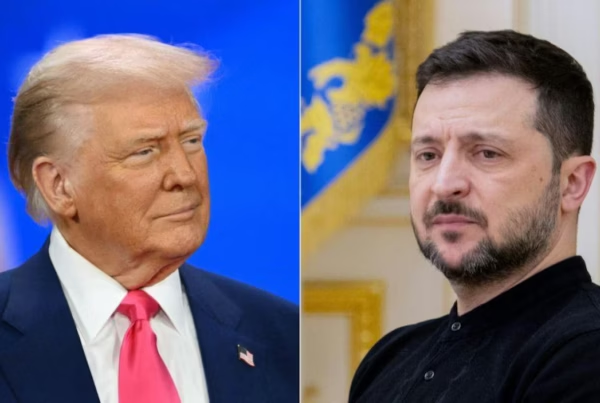By William Labasi-Sammartino
Trump’s shocking victory this past Tuesday certainly upset a lot people. Social activists and national security experts were worried about his views on social issues and foreign policy. Economists were also concerned. A group of economic Nobel laureates representing a range of views (from Robert Lucas Jr. and Thomas Sargent to Joseph Stiglitz) had signed an open letter endorsing Hillary Clinton and calling Trump’s proposals “reckless threats”(i). But with the Dow and the S&P in all-time high territory, markets don’t seem to accept the dire predictions that were made during the campaign.
Infrastructure, deregulation, and taxes
During the campaign season, there was a lot of talk about increasing infrastructure spending by both parties. With Republicans being in full control of the White House and Congress, this is the best hope since the Great Recession for increases in infrastructure spending. The supply-side effects can only be assessed when they actually happen, but if we follow Summer’s Secular Stagnation story, increased spending on infrastructure will be beneficial. Boosting investment should raise the neutral rate which has been stuck at about zero for a while. In turn, this could make the Fed’s low interest rate policy much more effective in raising inflation and reducing cyclical unemployment. The surge in long-term bond yields throughout the US and Europe is indicative of this.

Trump’s ambition to lower taxes and simplify the tax code may also answer some economists’ wish for large-scale fiscal stimulus. His populist message suggests that he won’t only cut for the rich, but for all — thus likely being very costly in terms of a fall in tax revenue. Likewise, the supply-side effects should be positive, but we’ll have to see what actually happens to properly assess their impact on long-term economic growth.
All of this fiscal stimulus will obviously balloon the deficit and the US national debt and worsen the US’s fiscal situation which could lead to more instability down the road and prevent a future administration from acting in the wake of an eventual recession.
Another important part is deregulation. The day after the election, bank stocks soared and outperformed many other sectors. It’s most likely a reaction to the expected deregulation that the Trump administration will take — especially removing the Dodd-Frank bill that increased oversight in the financial sector and heightened controls. Profits are expected to increase as a result.
The Fed
In all of this, the Fed and other central banks have an important role to play. It might not tolerate Trump’s expansionary fiscal policy so the fiscal multiplier may very well be zero. In reviewing Bernie Sanders’ platform, UC Berkeley economists Christina Romer and David Romer had already described a situation where the Fed would raise interest rates to undo any expansionary fiscal policy.(ii)
Massive demand-side stimulus in an economy closing in on its productive capacity would have one of two effects. First—and most likely—it would lead the Federal Reserve to raise interest rates, offsetting as well as it could the expansionary effects of the stimulus. Output would rise little, and the main effects would be on interest rates and on the composition of output between the components stimulated by the fiscal expansion and the components restrained by higher interest rates. Second, if the Federal Reserve did not respond, the result would be inflation. And if the stimulus were large enough to try to push the economy 10%, 20%, or more above its productive capacity, the inflation would be substantial.
Of course this all depends on the type of rule the Fed is following. Its recent moves towards discretionary policy may however set the precedent for allowing higher inflation. In any case, it’ll welcome the rise in the neutral interest rate as it’ll give them more “breathing room”.
Immigration and international trade
This is where Trump’s policies may do the most damage. Undoing trade agreements that allow for the free flow of capital and goods between borders will cause a huge negative supply shock. Increasing trade barriers will raise the price of consumer goods across the board and make life worse for most Americans — especially for Trump’s voter base. Tighter immigration will have similar effects by raising labour costs and preventing firms from recruiting high-skilled labour. Some economists in the past week have suggested that the odds of stagflation have increased slightly.
It should go without saying that protectionism will be horrible for emerging markets since their economies rely heavily on international trade.
Uncertainty of a Trump presidency
The onset of uncertainty from a Trump administration may also cause instability throughout the system. The positive market reaction so far indicates that investors are suggesting that Trump may turn out to be a traditional GOP supply-sider and therefore seems to be quite different from Brexit where we saw investors rush to bonds and dump the pound. Only time will tell what policies investors are expecting will actually materialize. It’s safe to say that the complete Republican takeover will bring an end to the gridlock that has plagued Congress in the last years.
References
i. http://www.nobellaureatesforclinton.us/economics/
ii. Romer, Christina D., and David H. Romer. Senator Sanders’s Proposed Policies and Economic Growth. Institute for New Economic Thinking, 25 Feb. 2016. Web. 11 Nov. 2016. <https://ineteconomics.org/uploads/general/romer-and-romer-evaluation-of-friedman1.pdf>.
Other posts that may interest you:
- The Trouble with ‘Ecocide’
- Carbon dioxide removal – hit or miss?
- Local Victories for Turkish Opposition — A Sign of Hope?
- Are France and Japan a Mismatch Made in Heaven?
- A Reflection on Dark Tourism
Discover more from The Sundial Press
Subscribe to get the latest posts sent to your email.



